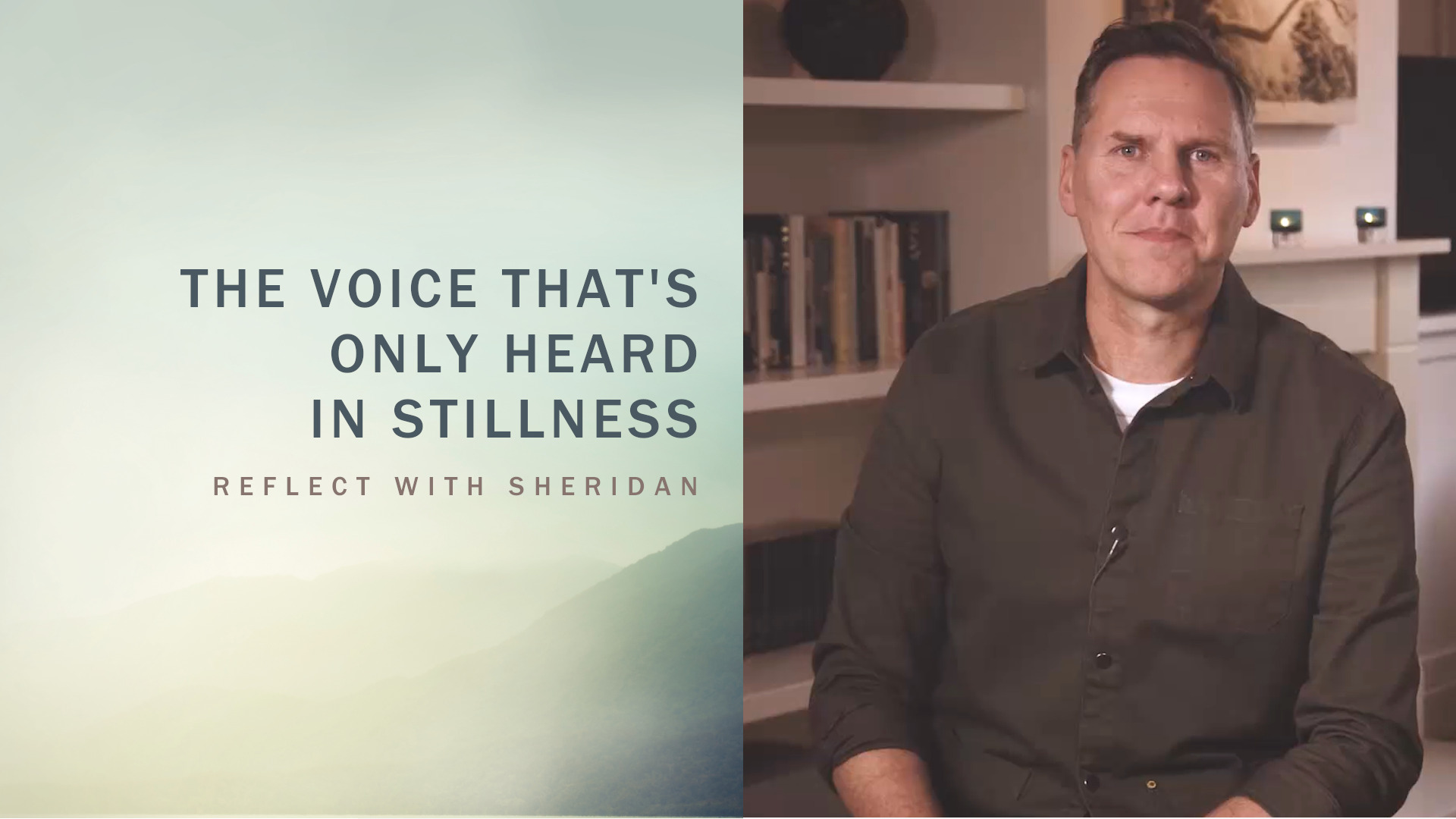060 Reading the Bible with Your Heart and Mind
God wants to speak to us and uses a variety of ways to do so. From whispering quietly into our hearts to speaking audibly, he speaks to those who are ready to listen and willing to confirm what they’ve heard through others. And he speaks through scripture. In fact, the Bible is his primary channel of communication and the test of all other experiences of guidance we have. Hear’s how to read it deeply.
Listen Now
In my interview with Richard Foster, Richard talks about the importance of reading scripture with both the mind and the heart (something he explores further in his book Life With God). In this post and podcast I’ll quote his advice, add some suggestions of my own, and share some tips and resources I’ve found personally helpful.
Reading with the Mind
“The first thing is to really understand the context of the Bible,” Richard says: “the historical situation of the passage you’re reading, the grammar, the whole contextual consideration of what that world was about and what the author was trying to say. I use the best tools of study that are available to me from scholars who’ve written on these things. I study the biblical languages as best I can; if I don’t know the originals myself then I follow those who do. And I’m learning in large enough parts of scripture that I’m not piecemealing it out to just get little things that make me feel good. I’m getting a sense of the whole.
“I remember the first time I ever experienced times of solitude. I took the book of Jeremiah in the Hebrew Bible, the Old Testament, and read through the entire book just trying to understand this prophet and his context. That gave me a great deal of understanding about what those scriptures were about.”
Into Practice
I can’t emphasise what Richard says enough. The Bible is an easy book to manipulate – string a few verses together out of context and we can make it say whatever we want. Here are some principles to follow for a richer reading:
- Before asking what a particular verse or passage means to you, ask what the writer intended to say to the original audience
- Explore the textual context. What does the verse mean within the paragraph, the paragraph within the chapter, and the chapter within the book?
- Explore the literary context. The Bible is rich with genres. What kind of literature is the section you’re reading – history, prophecy, a letter, or what?
- Explore the historical and cultural context. What was going on at the time and who were the main people involved? How did people live then?
Helpful Resources
- NIV Study Bible. I’ve used this for years. With its short overview sections for each biblical book and its basic commentary, this is a helpful tool for daily Bible study
- Bible Speaks Today. For more depth, this commentary series combines scholarship with accessibility
- IVP Bible Background Commentary: Old Testament and New Testament. These two volumes help me discover the cultural practices hiding behind each verse
- Discovery House Bible Atlas. Full of pictures and maps to help you imagine what was going on where
Reading with the Heart

The Bible isn’t to be treated as intellectual stimulation alone, though. It’s central purpose is to reveal the truth of God and shape our lives accordingly. So we don’t just read scripture with our mind but with our heart too.
“The first thing is to prepare the heart to hear from God,” Richard says of this next approach. “Hearing is an art that tends to be lost in our day. That means slowing down a little bit and then coming to the scripture with a humble heart. We want to be formed by it, we want to submit to it, we want to be taught by it, so we’re listening with the heart. We don’t leave the mind behind – we descend with the mind into the heart and there we stand before the Lord as he teaches us.”
Richard shares an experience that helps him read with both mind and heart: “I will take a passage in, perhaps, one of the Psalms. On the first reading I’ll read it through to get the context and the message of the Psalm. Then I’ll read it through a second time and, using a Bible that I’m comfortable marking up, I’ll highlight any passage that begins to speak to me or that I felt was important. Then I’ll do a third reading of only the highlighted sections and see if there might be a phrase or even a word that is rising to the surface in my mind and heart. It might be the phrase, ‘I will set the Lord always before me.’ Usually it will be a very brief phrase or sentence. I’ll then memorise that, live with it the whole day and allow it to form my heart. I’m reading with the heart; reading to be changed by it.
Into Practice
In the podcast I share my own experience reading Jesus’ Sermon on the Mount this way, the result of which was my recent book Resilient. Here’s the basic method:
- Read a passage through once to get the context
- Read it through a second time, asking God to speak to you personally through it
- Note the sentences or words that seem particularly striking
- Meditate on these: pray, memorise, and journal them; reflect on them all day or even all week
- If you’re reading a narrative, imagine yourself in the scene as one of the characters involved. Imagine yourself as either brother in this parable. Who do you resonate with most in this story: Mary or Martha?
Helpful Resources
- Here’s a guide to exploring the Lord’s Prayer this way
- Life With God by Richard Foster has more
- Eat This Book by Eugene Peterson has more again
One Important Factor
In our interview, I suggest to Richard that the key to everything we’re talking about is unhurried time with God – slowing down to allow these things to soak into our lives. “Exactly,” Richard says. “A friend of mine, Eugene Peterson, says that you can’t do spiritual formation work in a stampede. You have to rope a couple of steers, calm them down, let the adrenalin run out, and then maybe we can do some work together and come to scripture. We need to let our racing mind and heart calm down so that we can listen.”
Talk to Me
What have I missed about hearing God through scripture? Leave a comment below now. Please also rate and share this podcast on iTunes to help others discover it!





